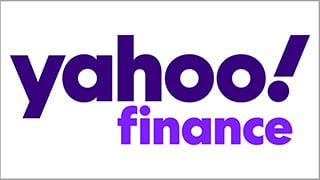
Manage ownership and reward your team
The go-to platform for share schemes, equity management, shareholder governance and funding round execution. FCA-authorised, B-Corp and ISO 27001 certified.








➤ Governance & compliance
Automate share schemes, equity management, cap tables, valuations, and compliance in one secure platform.
➤ Digitise your schemes
Migrate from spreadsheets or your existing provider to something smarter - we'll quickly get you set up.
➤ Easy onboarding
Our team provides concierge-level service to make onboarding slick and friction-free.
From scale to sale
➤ Scalability by design
Built for complexity: manage thousands of stakeholders and multiple share schemes with confidence and clarity.
➤ Fully connected
Eliminate manual filing and paperwork thanks to our unique two-way integration with Companies House.
➤ Enterprise-ready
Includes IFRS 2 support and more than 50 HRIS integrations for compliance and operational efficiency.

Equity management
Retain your best people
Turn high performers into long-term partners
Ownership gives your team a real stake in your success, helping you reduce turnover, strengthen loyalty, and retain critical talent in competitive markets.

Share & option schemes
Option Agreements
Generate compliant option agreements for recipients instantly, removing legal hassle, costs and unnecessary delays.
Templated Resolutions
For subdivisions, option pools and scheme changes, to simplify governance and speed up admin.
Dividends & Vouchers
Calculate, track, and record shareholder dividends and generate vouchers for eligible shareholders.
Fixed fee fundraising
Keep 100% of your investment with InVestd Raise
This £150 / month add-on includes a funding consultation, S/EIS Advance Assurance, legal docs, data rooms, a pitch deck template, share issuance, and then some...
Fundraising & S/EIS
What makes Vestd different?
Five star customer support
We provide exceptional, responsive support with expert guidance and personalised help, ensuring every customer manages ownership smoothly, securely and confidently.
UK focused & hands on
As the first platform of its kind to launch in the UK, our team has 10 years expertise and “what they don’t know about shares isn’t worth knowing”. So if you need answers...
Legal docs included
Compliant option agreements are automatically generated for every recipient, saving time, cutting legal costs, and removing the need to involve lawyers at every step.

Customer stories
How easyStorage simplified operations...
“What set Vestd apart was the combination of a user-friendly platform and an expert support team who guided us through the process from the outset. Compared with other providers we considered, Vestd felt much more tailored to UK growth companies, with clearer documentation, better compliance tools, and a more collaborative approach."
For investors
Can we help?
Book a short video call to explore the platform or discuss effective equity and shareholder management.
THE SHARETECH PLATFORM
See Vestd in action
Watch the video to take a closer look or book a guided demo.
AS SEEN IN THE MEDIA
















